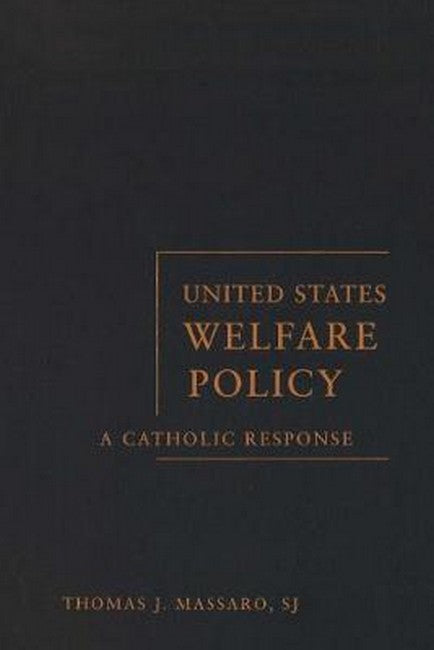Preface Introduction 1. Catholic Social Teaching: General Approaches to Social Policy Vehicles of Catholic Social TeachingThe Methodology of Catholic Social Teaching: Three CaveatsThe Central Vision of Catholic Social TeachingPositions Regarding Two Key InstitutionsThree Principles for Social Policy 2. The Historical Context of U.S. Welfare Policy The Roots of American Social PolicyThe New Deal and its LegacyThe "Permanent Crisis" of AFDCThe Role of Charitable and Faith-Based Organizations in the Social Welfare System 3. At the Crossroads: The Welfare Reform Law of 1996 The Block-Granting of WelfareTime Limitation of BenefitsWork RequirementsAnti-Illegitimacy MeasuresOther New Conditions on BenefitsOther Provisions of the 1996 Welfare LawThe Way Forward 4. The Bishops' Contribution to the Welfare Reform Debate The New Welfare Consensus of the 1980s and the Bishops' DemurralDocuments of the U.S. Catholic Church on Welfare Reform: 1994-96Five Guidelines for Social Policy 5. Implementing Welfare Reform, 1996-2006 Further Developments in Federal Welfare Policy, 1996-2002The Fallout of the 1996 Overhaul: Fears, Reaction and ResultsPatterns of State Implementation 6. The Politics and Ethics of Welfare Reauthorization The Politics of ReauthorizationOngoing Ethical Concerns Regarding Welfare PolicyPublic Church Contributions to Social Policy: Present and Future Bibliography Index

